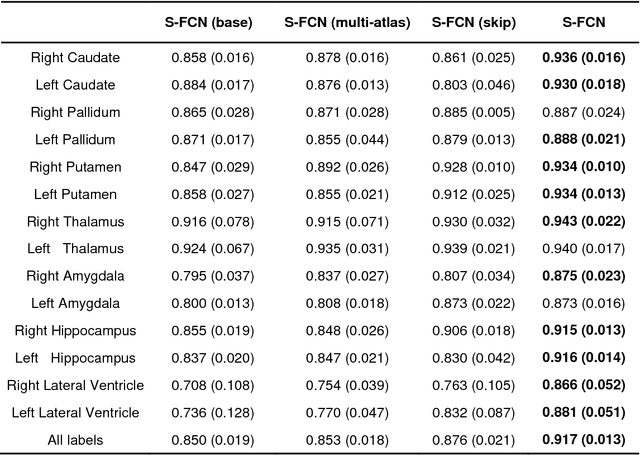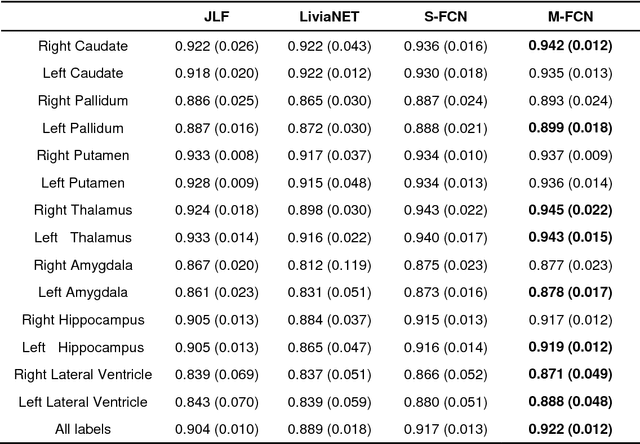Brain segmentation based on multi-atlas guided 3D fully convolutional network ensembles
Paper and Code
Jan 05, 2019



In this study, we proposed and validated a multi-atlas guided 3D fully convolutional network (FCN) ensemble model (M-FCN) for segmenting brain regions of interest (ROIs) from structural magnetic resonance images (MRIs). One major limitation of existing state-of-the-art 3D FCN segmentation models is that they often apply image patches of fixed size throughout training and testing, which may miss some complex tissue appearance patterns of different brain ROIs. To address this limitation, we trained a 3D FCN model for each ROI using patches of adaptive size and embedded outputs of the convolutional layers in the deconvolutional layers to further capture the local and global context patterns. In addition, with an introduction of multi-atlas based guidance in M-FCN, our segmentation was generated by combining the information of images and labels, which is highly robust. To reduce over-fitting of the FCN model on the training data, we adopted an ensemble strategy in the learning procedure. Evaluation was performed on two brain MRI datasets, aiming respectively at segmenting 14 subcortical and ventricular structures and 54 brain ROIs. The segmentation results of the proposed method were compared with those of a state-of-the-art multi-atlas based segmentation method and an existing 3D FCN segmentation model. Our results suggested that the proposed method had a superior segmentation performance.
 Add to Chrome
Add to Chrome Add to Firefox
Add to Firefox Add to Edge
Add to Edge